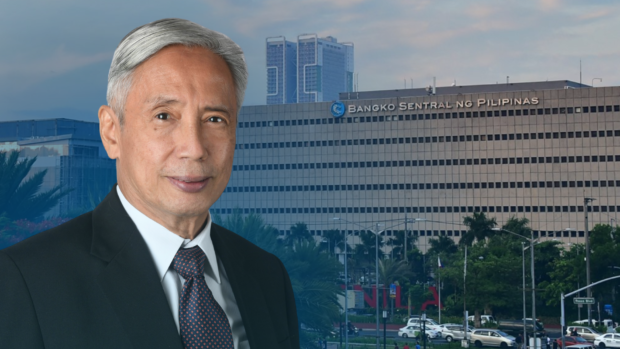
Bangko Sentral ng Pilipinas (BSP) Governor Felipe Medalla (Photos from BSP official Facebook page and website)
MANILA, Philippines — The Bangko Sentral ng Pilipinas (BSP) has raised the interest cap on credit card transactions to 3 percent a month or 36 percent a year.
BSP Governor Felipe Medalla said in a statement that the increase would help banks and credit card issuers cover higher costs related to the efficient handling of consumer transactions, including prompt and timely dispute resolution, as well as the retention of competent personnel.
The move will also help banks adjust to the series of hikes in the BSP’s policy rate to 5.5 percent from 2 percent at the onset of the COVID-19 pandemic.
Medalla added that the decision to raise was also consistent with the BSP’s objective of keeping credit card pricing affordable without jeopardizing the long-term viability of the credit card operations of issuers.
This comes from a cap of 2 percent per month or 24 percent per year, which the BSP imposed to help consumers when they were enduring the brunt of the COVID-19 pandemic.The Monetary Board, however, kept the ceiling on the monthly add-on rate that credit card issuers can charge on installment loans is maintained at 1 percent.
Further, the maximum processing fee on the availment of credit card cash advances remains at P200 per transaction.
Softer consumption
Nicholas Mapa, senior economist at ING Bank, said the higher rates for credit card transactions “point to softer consumption in 2023.”
Mapa said bank lending sustained growth in 2022 despite aggressive policy rate hikes thanks to the reopening of the Philippine economy and also because the credit card rates were unchanged.
Material deterioration
Meanwhile, Pantheon Macroeconomics is already seeing a “material deterioration in domestic demand,” gleaned from an ongoing decline in the Philippines’ trade deficit.
The Philippine Statistics Authority earlier reported that the country’s deficit in its trade of goods with the rest of the world narrowed for the third straight month to a 17-month best in November 2022 as exports maintained double-digit growth while imports shrank.
“Purchases of consumer and capital goods have been rolling over, with the cumulative weakness in both [of them] accounting for just under a third of the decline in total inbound shipments since July,” said Miguel Chanco, the United Kingdom-based think tank’s chief economist on Asian emerging markets.
Robert Dan Roces, chief economist at Security Bank, said private consumption would remain the engine of growth for 2023, although at a slower pace.
“Risks remain on the upside with private consumption seemingly defying expectations as we saw in 2022,” Roces said.

